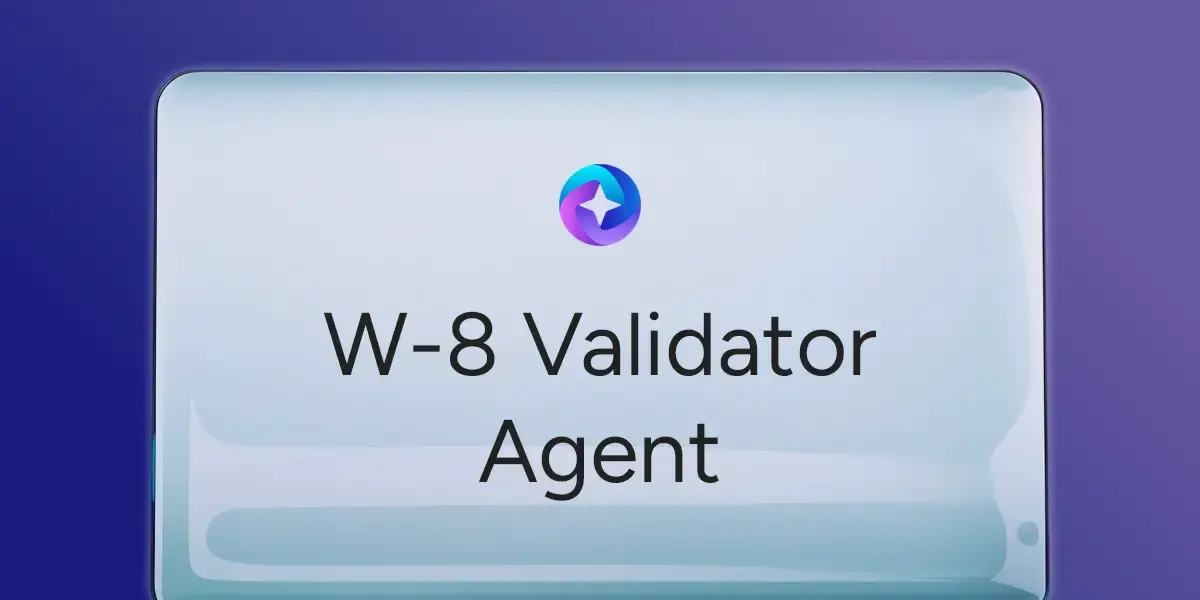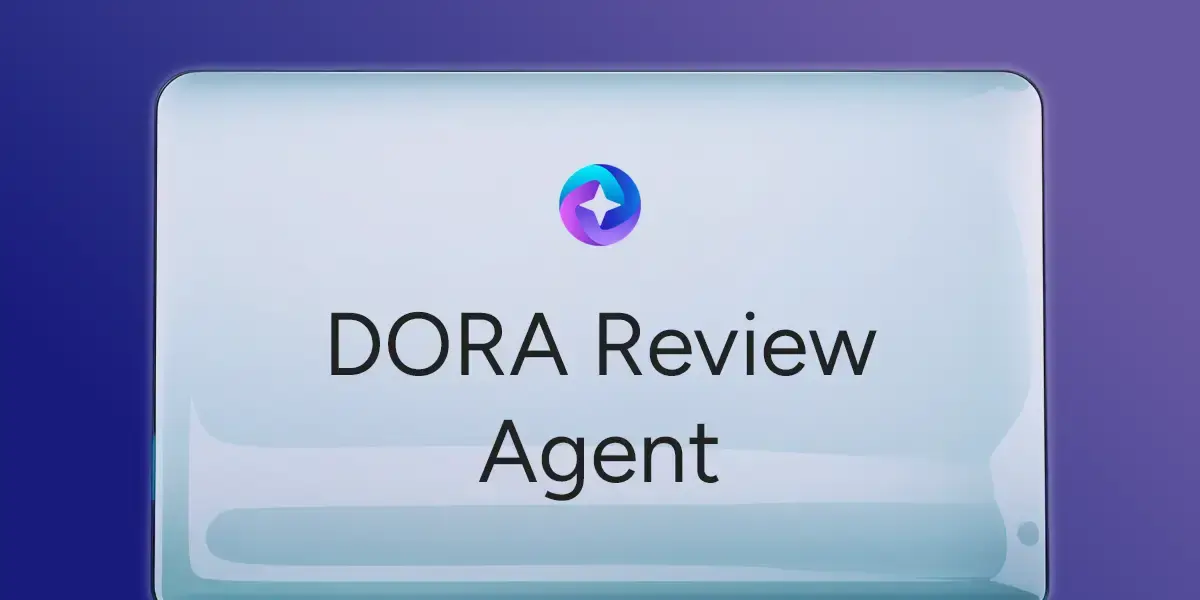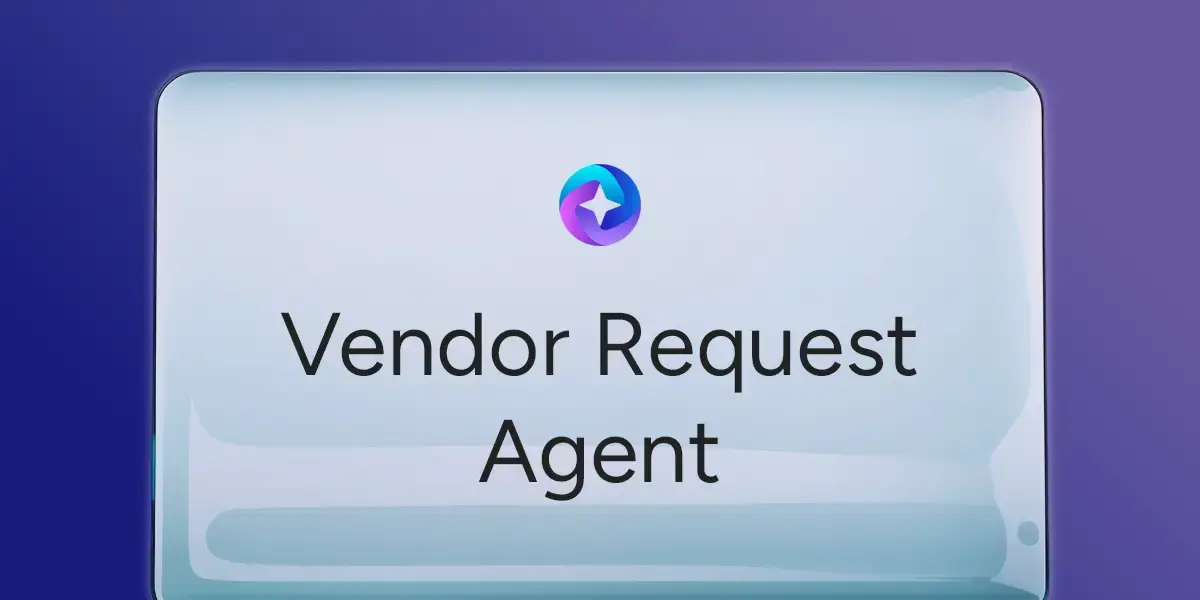Procurement teams are now expected to manage risk, ensure compliance, and protect value across the third-party lifecycle. Gatekeeper offers a unified model, powered by agentic AI, to help teams meet that mandate with confidence and control.

AI isn’t coming to procurement - it’s already here. What was once a cautious experiment is now an urgent operating shift. Adoption is no longer theoretical. It's happening in real time. What started as cautious curiosity has shifted into early-scale adoption. And the leaders moving fastest aren’t just testing - they’re already transforming.
For compliance-driven, mid-market teams already stretched thin, this shift hits harder. They’re expected to absorb AI-led change at the same pace as enterprise giants - without the luxury of headcount or long rollouts. These lean teams are managing rising third-party risk, fragmented contract processes and growing regulatory pressure, with fewer resources and more at stake.
According to Deloitte, 92% of procurement leaders are actively monitoring AI capabilities, with just 8% choosing to sit it out. Meanwhile, 64% expect AI to fundamentally reshape their roles within five years. The potential of AI Agents is more than another round of tolling. It’s a strategic redefinition of procurement’s place at the table.
“I think there is a fantastic opportunity for the procurement community to elevate its game with AI and get out of the busy work and focus on what we have always wanted to focus on – things like category management, strategic sourcing, supplier relationship management.”
Moundir Khenfous, Director of Indirect Procurement, CAE
Guest on Gatekeeper's Procurement Reimagined podcast
At Gatekeeper, we believe that the use of AI transforms procurement teams. Procurement will no longer be perceived as the department of 'no'. Instead, it becomes the guardian at the gate. The function that protects the business from risk while unlocking the value hidden in every vendor relationship.
And the gains? They’re real, and they’re measurable.
Early AI adopters are already seeing with 84% outperforming on supplier metrics than those without AI (Deloitte).
AI can eliminate up to 30% of manual effort across core procurement processes - freeing teams to focus on consolidation, negotiation, and value creation. (BCG)
Yet even as optimism runs high with 85% of procurement leaders believing in AI’s efficiency potential - many haven’t moved.
In fact, 61% of procurement teams haven’t yet deployed AI, leaving critical risk blind spots, compliance gaps, and six-figure savings untouched.
If that’s where your team stands today, the message is clear: standing still is no longer safe.
-1.png)
The AI era doesn’t just demand new tools. It demands a new type of Procurement leader.
One who’s no longer measured solely by cost savings, but by their ability to protect margin, reduce overall risk, and enable growth. One who replaces firefighting with foresight. One who earns a seat at the boardroom table, not by shouting louder, but by solving bigger problems.
Yet too many Procurement teams remain trapped in a transactional identity. Reactive to requests. Buried in admin. Side-stepped by the business. Measured on what they save, not what they safeguard.
AI doesn’t transform Procurement in isolation. It amplifies the structure it’s given. If that structure is siloed - spread across spreadsheets, disconnected systems, and ad hoc processes - AI only accelerates the fragmentation.
That’s why unification must come first.
When risk data lives with Risk, contract terms with Legal, and supplier performance with Finance, Procurement is left firefighting blindfolded. But unify that data into a single, intelligent lifecycle and suddenly, every decision gets sharper, faster, safer.
This is the real foundation for procurement transformation. Only then can teams drive the shift from:
Manual vetting to risk-first, always-on compliance
Bottlenecked contracting to fast, policy-aligned agreements
Reactive admin to long-term margin and relationship management
Procurement doesn’t evolve by automating the noise. It evolves by replacing disconnected tasks with one unified contract and third-party management process - then amplifying it with AI.
Contract Lifecycle Management, Vendor Lifecycle Management and Source-to-Pay software is built to digitise isolated tasks, not unify the process.
Each tool made a single team faster, but Procurement as a whole remains fractured. Teams are still working in silos, juggling spreadsheets, and losing time and money to manual work and blind spots.
That model is breaking.
Strategic procurement leaders need control over the full third-party lifecycle, from intake and risk assessment through to renewal and performance. That level of control only becomes possible when contracts, third parties and spend data are unified - and made intelligent by AI.
CLM tools help Legal redline faster, but Procurement is left in the dark. There’s no early view of vendor risk. No commercial or budget guardrails. No visibility into spend post-signature.
You’re getting to signature faster, but with exposure, leakage, and rework waiting on the other side.
VLM platforms help tick boxes during onboarding - but do little beyond that. They’re not linked to contractual protections. They don’t enforce cross-functional workflows. They have no connection to actual performance, renewals, or spend.
You’re compliant on day one but vulnerable by day 100.
Because every tool you’ve added has made one team faster but left the system as a whole fractured.
Risk lives with Risk. Contracts live with Legal. Spend lives with Finance. Procurement sits in the middle - chasing approvals, resolving blind spots, and trying to control spend leakage across disconnected systems.
That fragmentation isn’t just inefficient, it’s expensive. It creates compliance gaps, spend duplication, audit failures, and deal delays.
A unified platform closes those gaps. It brings risk, contracts, and spend into one continuous, intelligent lifecycle - so every decision is made with full context, and every process moves without manual effort.
That’s what Gatekeeper delivers.
We don’t patch the problem - we’ve rebuilt the model.
Where others automate fragments, we unify the full third-party lifecycle, powered by embedded AI agents.
From intake to renewal, every third-party record becomes a single source of truth - risk scores, contract terms, obligations, spend lines, approvals - all connected.
And it’s not just unified. It’s intelligent.
Agentic AI powers every step, with LuminIQ Agents automating reviews, enforcing controls, and surfacing risks and savings - without manual input.
Gatekeeper doesn’t just show you what’s happening - it makes the right actions happen by default.
The right AI agents - when embedded directly into procurement workflows - can eliminate weeks of manual effort, surface risk before it becomes exposure, and reveal six-figure savings long before renewal dates creep up.
At Gatekeeper, we don’t talk about AI as a “nice-to-have.” We deliver it through digital co-workers - LuminIQ Agents - that take on the grind so Procurement leaders can focus on strategy.
Our AI Agents automate the work that drains Procurement’s time - surfacing risk, validating compliance, reviewing contracts, and tracking savings opportunities. They operate behind the scenes so your teams can focus on what matters: strategy, negotiation, and business impact.
Here’s what that looks like in action:
Reviews contracts against the internal standard contract playbook.
Identifies and flags non-compliant clauses in contracts.
Classifies contracts by type, risk level, or function.
Reviews incoming AI Due Diligence Questionnaires to ensure compliance with internal standards
Reviews incoming ESG Assessments to ensure compliance with internal ESG standards.
Reviews contracts for potential opportunities for negotiation.
CompSource Mutual, a leading workers’ compensation insurer in Oklahoma, faced rising pressure to move faster while managing a growing contract volume. Manual handoffs between Procurement, Legal, and Finance slowed approvals and kept the team tied up in tactical work.
Procurement Manager Tim Harvey introduced Gatekeeper’s LuminIQ to remove these bottlenecks and streamline review cycles.
95% reduction in executive review time through 10-line AI summaries
~636 hours saved per year - equal to 17 weeks of added capacity
Handoff delays eliminated between Finance and Procurement
Value delivered within weeks, not months
CompSource deployed LuminIQ at the finance-review stage - targeting the most time-consuming friction points.
By deploying AI early in the process, CompSource Mutual regained control over spend before it leaks.
LuminIQ eliminates manual checks and second-guessing, blocking non-compliant deals before they drain time and credibility. Procurement teams move faster, stay within guardrails, and bring Finance-ready contracts to the table - proving their role as strategic enablers, not operational bottlenecks.
“There are a ton of companies out there, making a lot of claims about AI. Not only is Gatekeeper the right solution for us, but we’ve been blown away by what LuminIQ can further improve.”
Tim Harvey, Procurement Manager, CompSource Mutual Insurance
With Gatekeeper, vendor reviews run themselves.
AI pulls KPIs from contracts, builds scorecards automatically, and schedules reviews - no chasing, no spreadsheets.
Every vendor is assessed consistently, with performance tracked against obligations and SLAs from day one.

Our Vendor Portal captures requests - business case, budget, and approvals - in one streamlined flow.
Gatekeeper then verifies identity, runs sanctions checks, flags duplicates, and confirms ownership - blocking fraud, reducing redundancy, and controlling spend before contracts begin.

Gatekeeper unifies vendor, contract, and spend data - so you can surface duplicate suppliers, spot unmanaged spend, and consolidate with clarity.
LuminIQ agents reveal savings opportunities hiding in renewals, redundant tools, and fragmented relationships - all visible in one platform, or inside your ERP.

Everything you need to know about AI in Procurement.
AI is reshaping procurement not by adding more tools, but by removing the operational weight that has kept teams reactive for years. And the biggest gains appear when AI isn’t bolted on, but embedded directly into the lifecycle through agentic automation.
Procurement teams using LuminIQ AI Agents are seeing results that go far beyond incremental efficiency:
75% faster contract cycles as AI reviews clauses, extracts obligations, and accelerates approval routing.
90% faster onboarding because risk checks, identity validation, duplication checks, and document capture run autonomously.
40+ hours saved per audit cycle as evidence, approvals, and certifications stay continuously up to date.
Six‑figure savings surfaced early, as AI monitors renewals, spend patterns, and consolidation opportunities long before human teams have the bandwidth to look.
These are not theoretical benefits. They are proven outcomes delivered when AI agents operate inside a unified system - where risk, contracts, and spend are linked, and every process becomes intelligent by default.
AI agents don’t just analyse after the fact. They intercept issues in real time, automating the checks that often get skipped when teams are stretched.
With Gatekeeper’s LuminIQ Agents, here’s what happens:
At intake: Agents verify identity, check for duplicate vendors, run sanctions and financial risk checks, before Procurement ever gets involved.
At contracting: Contract Reviewer and Clause Analyser agents flag missing protections, extract obligations, and enforce guardrails without waiting on Legal.
At renewal: Spend and Performance agents surface unmanaged spend, flag redundant tools, and expose hidden renewal cliffs, well before they impact the budget.
Across the lifecycle: Every third-party record stays audit-ready, with no manual chasing or spreadsheet reconciliations.
These aren’t just insights. They’re interventions - automated, continuous, and intelligent.
When data flows through a connected lifecycle, AI agents can do more than automate approvals - they start surfacing commercial insight:
Duplicate suppliers that dilute negotiation power
Unmonitored renewals that lock in outdated pricing
Fragmented vendor relationships that hide consolidation wins
Shadow spend that sidesteps budget controls
Low-performing suppliers where costs outpace value
Gatekeeper connects the dots across intake, risk, contract, and spend - so its AI agents can track obligations, highlight consolidation opportunities, and surface savings before money leaves the business.
Most procurement tech is fragmented - CLM for Legal, VLM for third parties, S2P for spend.
Gatekeeper unifies contract, third party and spend management into one intelligent lifecycle, powered by AI agents like:
Contract Reviewer
Clause Analyser
Due Diligence Assistant
ESG Reviewer
This isn’t AI stitched onto old workflows. It’s intelligence designed into the unified operating model.
Here’s what Gatekeeper customers like CompSource Mutual have achieved:
95% reduction in executive review time
17 weeks of capacity reclaimed per year
Savings found in vendor consolidation
Value delivered within weeks, not quarters



.png)
.png)
.png)
-4.png)
Before Gatekeeper, our contracts
Anastasiia Sergeeva, Legal Operations Manager, BlaBlaCar
were everywhere and nowhere.
Gatekeeper is that friendly tap on the shoulder,
Donna Roccoforte, Paralegal, Hakkasan Group
to remind me what needs our attention.
Great System. Vetted over 25 other systems
Randall S. Wood, Associate Corporate Counsel, Cricut
and Gatekeeper rose to the top.
Thank you for requesting your demo.
Next Step - Book a Call
Please book a convenient time for a quick call to discuss your requirements.